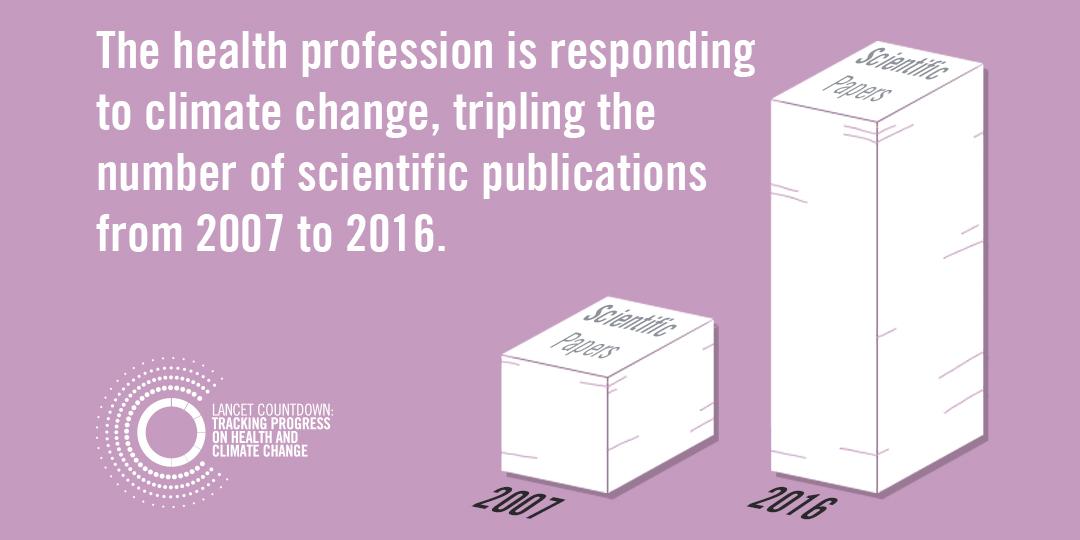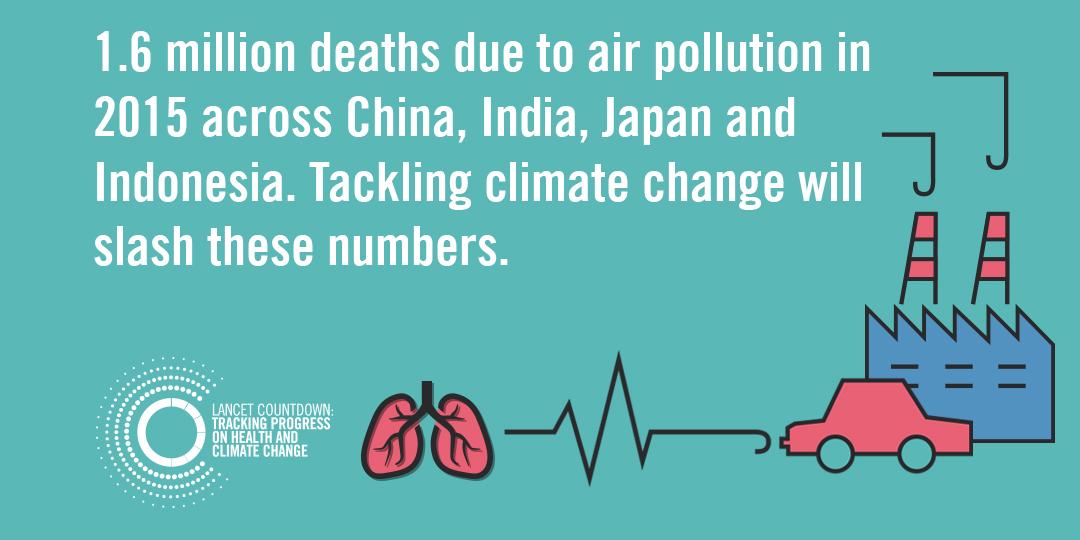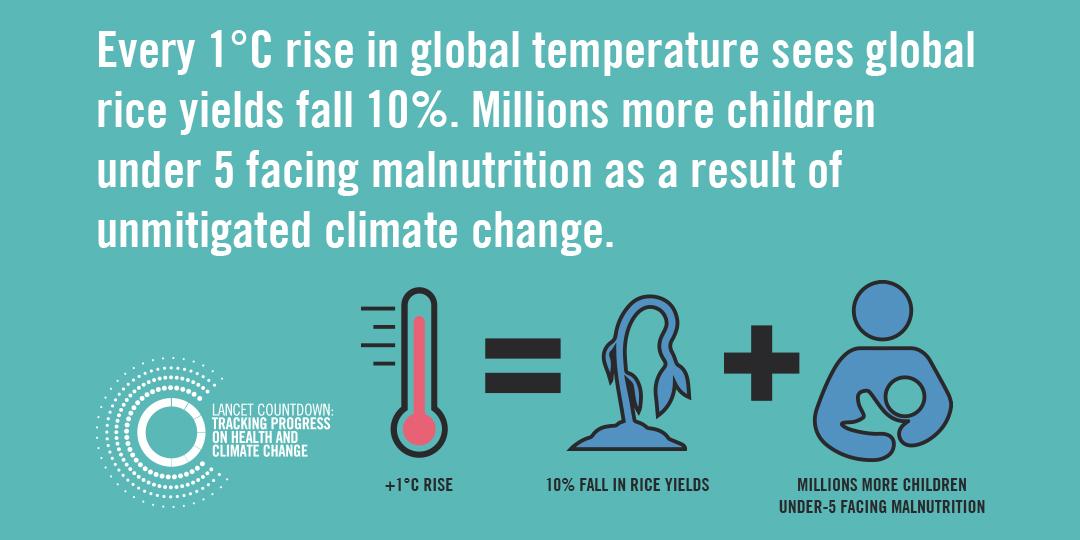The Lancet Countdown on Health and Climate Change (*) released today a new report titled, “From 25 years of inaction to a global transformation for public health” that follows on the 2015 Lancet Commission on Health and Climate Change report, which emphasized that the response to climate change could be “the greatest global health opportunity of the 21st century”.
The findings show that climate change is affecting the health of all populations, today. These impacts are disproportionately felt by communities least responsible for climate change and those who are the most vulnerable in society. The report identifies health challenges that are only just beginning to emerge, just as the findings show there is no room for complacency. Unavoidable increases in global temperature, and the role of climate change as a threat multiplier or an accelerant of instability, mean they can be expected to significantly worsen.
“The voice of the health profession is essential in driving forward progress on climate change and realizing the health benefits of this response.” – The 2017 Report of the Lancet Countdown.
The authors are clear the necessary response to climate change still provides an opportunity to realize substantial gains in public health. The potential benefits and opportunities are staggering, including cleaning-up the air of polluted cities, delivering more nutritious diets, ensuring energy, food and water security, and alleviating poverty, alongside social and economic inequalities.
The report’s authors and the results of the 40 indicators come to three key conclusions:
- The human symptoms of climate change are unequivocal and potentially irreversible – affecting the health of populations around the world, today.
- The delayed response to climate change over the past 25 years has jeopardized human life and livelihoods.
- Although progress has been historically slow, the past 5 years have seen an accelerated response, and in 2017, momentum is building across a number of sectors; the direction of travel is set, with clear and unprecedented opportunities for public health
The indicators span five categories: climate change impacts, exposures, and vulnerability; adaptation planning and resilience for health; mitigation actions and health co-benefits; economics and finance; and public and political engagement. Some discoveries are:
- 87% of cities globally are in breach of WHO air pollution guidelines, meaning billions of people worldwide are exposed to unsafe levels of atmospheric particulate matter (PM 2.5). This is significantly higher than previously thought. In South East Asia, 1.9 million people died prematurely as a result of ambient air pollution in 2015.
- Between 2000 and 2016, the number of people exposed to heatwave events has increased by approximately 125 million, with a record 175 million people exposed to heatwaves in 2015. This supports the Lancet’s existing research showing just under 1 billion additional heatwaves exposure events happening by 2050.
- Out of the world's total adaptation spend, just 4.63% ($16.46 billion USD) is on health and 13.3% ($47.29 billion USD) on health-related adaptation.
- NHS emissions reduced by 11% from 2007 to 2015, despite an 18% increase in activity.
- The global value of funds committing to divestment in 2016 was $1.24 trillion, of which health Institutions represent $2.4 billion; this represents a cumulative sum of $5.45 trillion (with health accounting for $887 billion).
Learn more:
Visit the Lancet Countdown website to learn more about the indicators and findings, download policy briefings, and find multimedia communication resources.
Visit The Lancet’s website to download the full report in English (with Executive Summary translations available in French, Mandarin, and Spanish), and to explore interactive infographics.
Watch the video
(*) About the Lancet Countdown on Health and Climate Change
The Lancet Countdown: Tracking Progress on Health and Climate Change is an international multi-disciplinary research collaboration between academic institutions that provide a global overview of the relationship between public health and climate change. Publishing its findings in The Lancet medical journal each year, the initiative aims to help inform an accelerated response to climate change.
Leading academics and technical experts from across 24 partner institutions around the globe have contributed analysis included in the 2017 report. Example partner organizations include the World Bank, World Health Organization, University College London, and Tsinghua University among others.
For more information, visit: http://www.lancetcountdown.org/about-us/.


